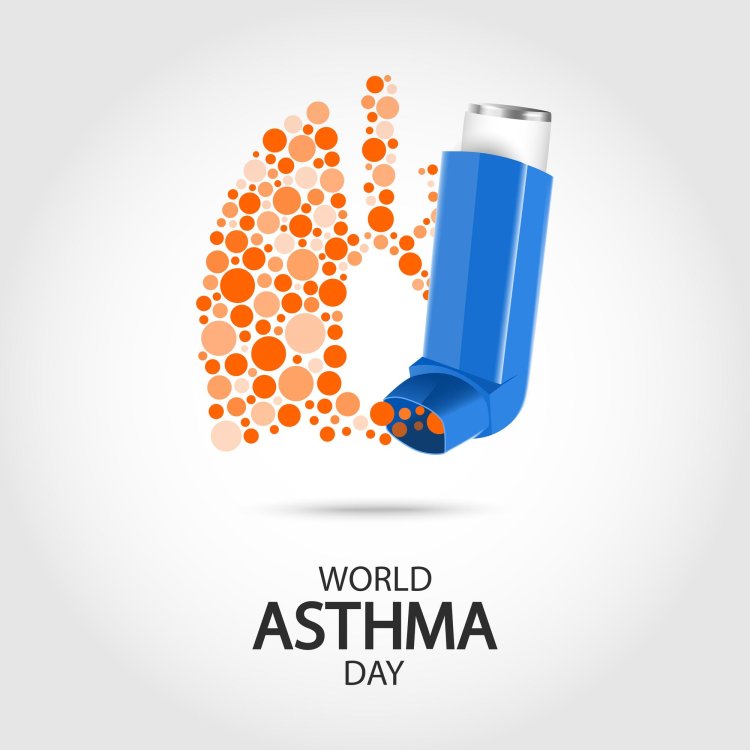Where in the world is Asthma least Prevalent?
Discover where in the world asthma is least prevalent and the possible reasons behind it. Learn about the impact of allergens, pollution, and infectious diseases on asthma prevalence and gain insight into how different regions can work to reduce the burden of this chronic respiratory condition.

World Asthma Day is an annual event held on the first Tuesday of May to raise awareness about asthma and its impact on people's lives. The day is organized by the Global Initiative for Asthma (GINA), an international organization that aims to improve asthma care and prevention around the world.
GINA has chosen “Asthma care for All” as the theme for the 2023 World Asthma Day. The majority of the burden of asthma morbidity and mortality occurs in low and middle income countries.
The theme for World Asthma Day changes each year, and the day is marked by a range of activities and events aimed at increasing awareness of asthma and its impact. Some of the common activities that take place on World Asthma Day include public lectures and seminars, health fairs, and community outreach events.
Strangely, words are so inadequate. Yet, like the asthmatic struggling for breath, so the lover must struggle for words. – T. S. Eliot
The main goal of World Asthma Day is to raise awareness about the importance of proper asthma management and treatment. Asthma is a chronic disease that affects millions of people worldwide, and it is a leading cause of disability and death in many countries. However, with proper management, most people with asthma can live healthy, active lives.
On World Asthma Day, organizations and individuals around the world work together to increase awareness about the signs and symptoms of asthma, the importance of proper diagnosis and treatment, and the need for ongoing management and monitoring of the condition. This includes encouraging people to seek medical attention if they experience symptoms such as coughing, wheezing, or shortness of breath, and to work with their healthcare providers to develop an effective management plan.
In addition to raising awareness, World Asthma Day also serves as an opportunity to highlight the latest research and advances in asthma treatment and care. This includes new medications and therapies, as well as developments in technology and healthcare delivery that can help improve asthma management and outcomes.
World Asthma Day is an important event that helps to raise awareness about asthma and its impact on individuals and communities around the world. By working together to increase awareness and improve management and treatment, we can help to reduce the burden of asthma and improve the lives of people with this chronic condition.
Where in the world is Asthma least Prevalent?
Asthma is a chronic respiratory condition that affects millions of people worldwide. It is a condition that can lead to difficulty breathing, coughing, wheezing, and tightness in the chest. While asthma is prevalent in many parts of the world, there are some areas where it is less common.
According to the World Health Organization (WHO), the countries with the lowest prevalence of asthma are generally found in Africa and Asia. This is in contrast to the highest prevalence of asthma, which is found in countries such as Australia, the United Kingdom, and the United States.
One possible reason for the lower prevalence of asthma in these areas is that they have a lower level of exposure to allergens and pollutants that can trigger asthma attacks. For example, rural areas with lower levels of industrialization and pollution tend to have lower rates of asthma. In addition, these areas may have diets that are rich in anti-inflammatory foods, which can help to reduce inflammation in the airways.
Another factor that may contribute to the lower prevalence of asthma in some areas is a higher prevalence of infectious diseases. It has been suggested that exposure to infections during childhood may help to reduce the risk of developing asthma later in life. This is known as the hygiene hypothesis, and it suggests that exposure to certain infections may help to stimulate the immune system and reduce the risk of developing asthma.
Overall, the prevalence of asthma varies widely around the world, with some areas having much lower rates than others. While the exact reasons for these differences are not yet fully understood, it is clear that factors such as pollution, diet, and infectious diseases may all play a role.
What's Your Reaction?


















